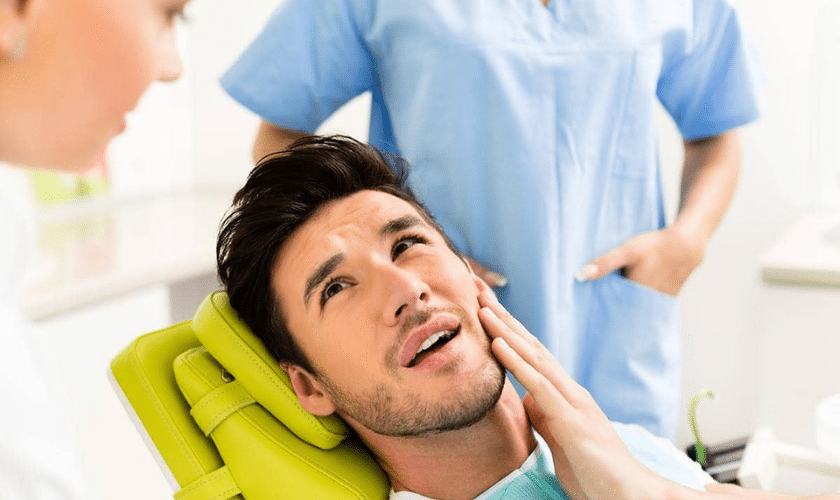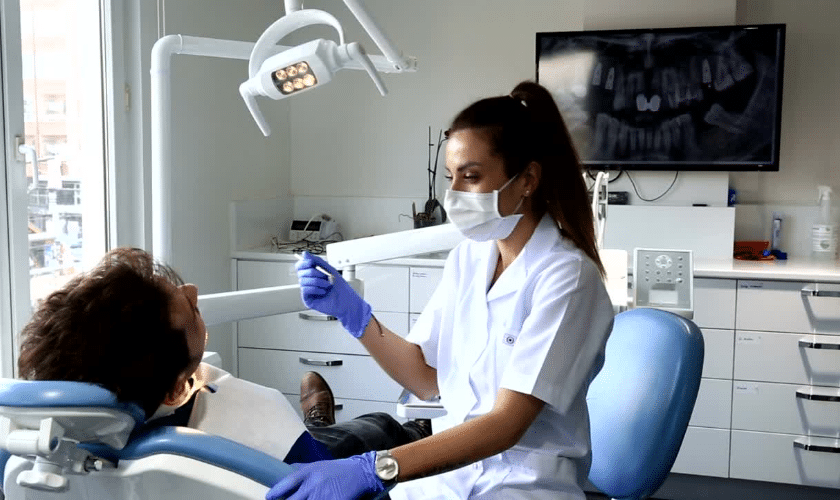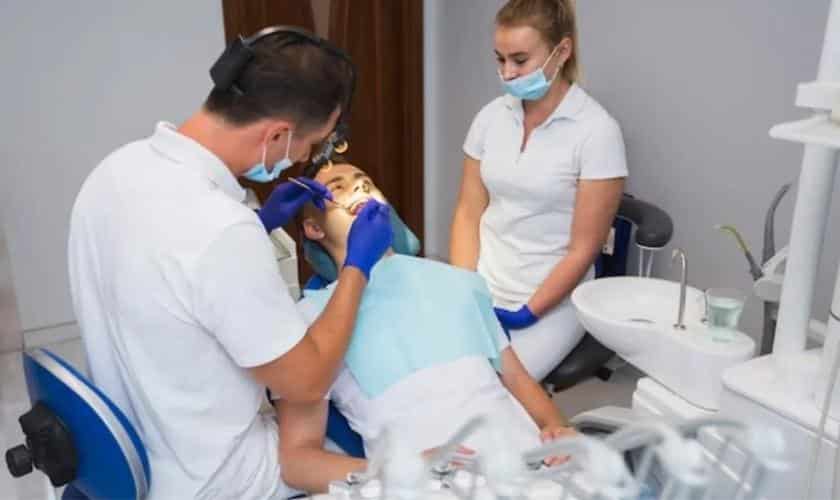908-282-3366
Don’t Let a Dental Emergency Turn into a Disaster

Imagine being roused from sleep by an unbearable toothache or sudden dental injury in the dead of night. Dental emergencies can occur without warning, causing pain and discomfort. However, armed with the right knowledge and preparation, you can prevent such emergencies from spiraling into dire situations. In this comprehensive guide, we’ll explore crucial strategies to steer clear of dental emergencies and underscore the importance of timely care from an emergency dentist in Montgomery, NJ.
Understanding Dental Emergencies
Dental emergencies encompass a wide array of issues, including severe toothaches, knocked-out or fractured teeth, abscesses, and soft tissue injuries in the mouth. These emergencies arise unexpectedly, demanding immediate attention to prevent further damage and alleviate pain.
Preventive Measures to Avoid Dental Emergencies
Maintaining a Healthy Diet: Opt for a balanced diet rich in calcium, phosphorus, and essential vitamins to fortify teeth and gums. Limit intake of sugary snacks and acidic beverages to ward off tooth decay.
Adopting Proper Techniques: Brush teeth gently using a soft-bristled brush and fluoride toothpaste, avoiding aggressive brushing that may harm enamel or gums.
Scheduling Regular Dental Cleanings: Professional cleanings remove plaque and tartar buildup, reducing the risk of cavities and gum disease. Adhere to your dentist’s recommended cleaning schedule.
Addressing Teeth Grinding: Utilize a mouthguard to protect teeth from damage caused by nocturnal teeth grinding (bruxism).
Avoiding Smoking and Excessive Alcohol: Minimize smoking and heavy alcohol consumption, as they can contribute to gum disease and other oral health issues.
Staying Hydrated: Drink plenty of water throughout the day to keep the mouth hydrated, wash away food particles, and maintain saliva production, which helps protect against cavities.
Replacing Toothbrushes Regularly: Change toothbrushes every three to four months or sooner if bristles become frayed, as worn-out toothbrushes are less effective at cleaning teeth.
Understanding Personal Risk Factors: Recognize susceptibility to certain dental issues due to genetics or medical conditions, and discuss these concerns with your dentist for tailored preventive care.
Being Mindful of Dental Restorations: Handle dental crowns, fillings, or other restorations with care, avoiding hard or sticky foods that could damage them.
Recognizing and Responding to Dental Emergencies
Toothache: Rinse mouth with warm water, gently floss between teeth, and avoid placing painkillers directly on gums. Seek emergency dental care if pain persists.
Knocked-Out Tooth: Handle the tooth by the crown, rinse gently if dirty, and attempt to reinsert it into the socket or store it in milk or saliva until receiving dental care.
Cracked or Fractured Tooth: Rinse mouth with warm water, apply a cold compress to reduce swelling, and avoid pressure on the affected tooth. Contact the emergency dentist promptly to assess the damage.
Object Stuck Between Teeth: Use dental floss to remove objects gently and carefully. Avoid using sharp objects that could damage gums or teeth.
Lost Dental Filling or Crown: Keep the area clean, avoid chewing on the affected side, and use over-the-counter dental cement or temporary filling until the dental appointment.
Broken Braces or Wires: Adjust protruding wires with the eraser end of a pencil or cotton ball. Cover the wire end with orthodontic wax or cotton ball if unable to adjust, and seek assistance from an orthodontist.
Why You Need an Emergency Dentist
Immediate Assistance: Emergency dentists offer prompt care for sudden and severe dental issues, providing immediate relief from pain and discomfort.
Specialized Expertise: These professionals possess specialized training to handle urgent dental situations, ensuring efficient and effective treatment.
Advanced Equipment: Emergency dental clinics are equipped with advanced tools and technology tailored for urgent dental needs.
Prevention of Complications: Seeking timely care from an emergency dentist helps prevent complications arising from untreated dental emergencies.
Preservation of Teeth: Prompt intervention by an emergency dentist increases the likelihood of saving a damaged or knocked-out tooth.
While dental emergencies can be distressing, they are often preventable with proper care and vigilance. By following preventive measures and knowing how to respond to emergencies, you can safeguard your oral health. Remember, swift action and seeking help from an emergency dentist in Montgomery, NJ can prevent minor issues from escalating into dental disasters.
Prioritize your oral health, stay prepared, and act promptly to ensure a healthy and pain-free smile for years to come.




